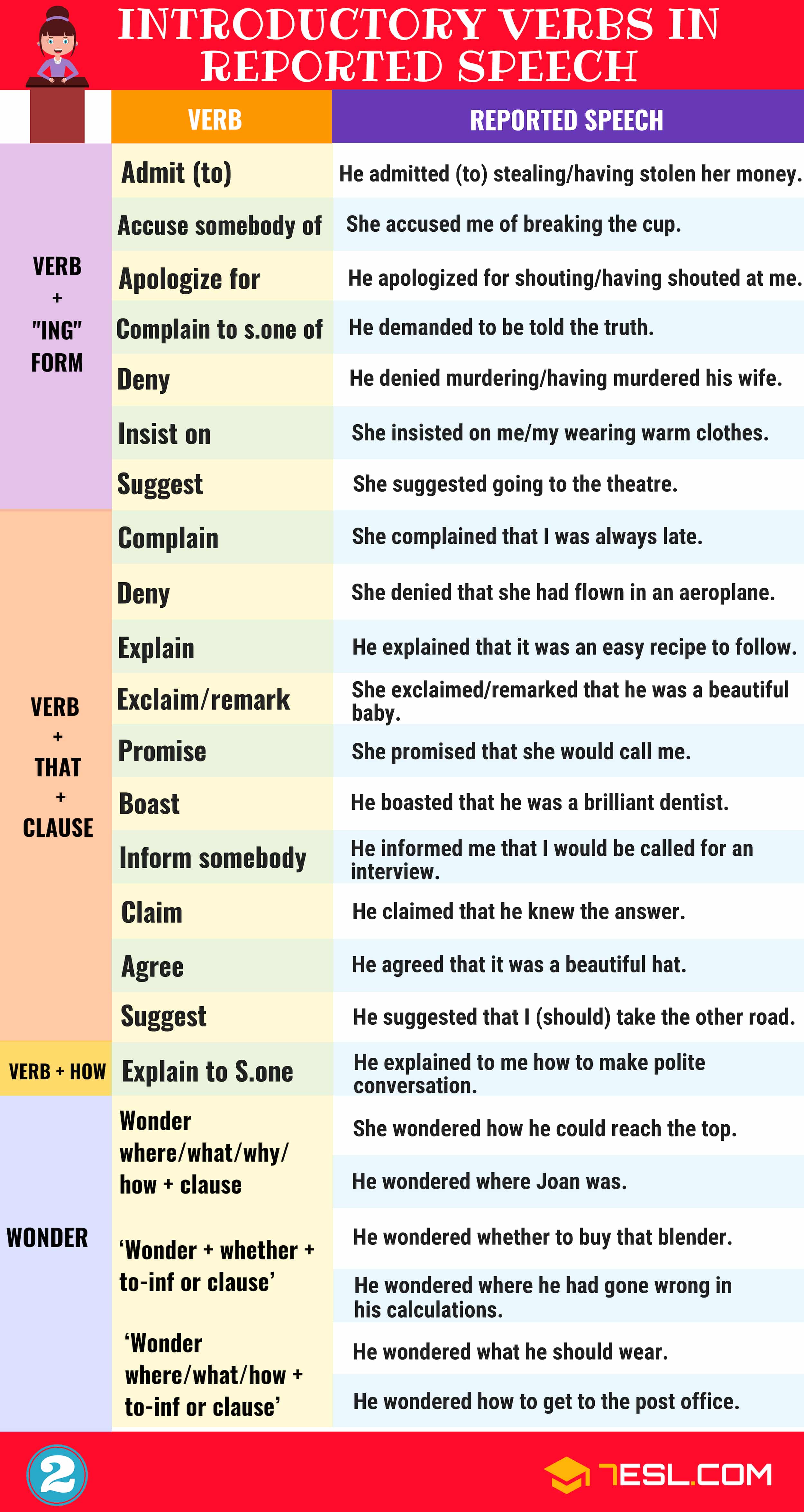
Reported Speech Important Grammar Rules and Examples Effortless English
EnglishClub : Learn English : Grammar : Reported Speech : Time and Place in Reported Speech When we report something, we may need to make changes to: time (now, tomorrow); place (here, this room)
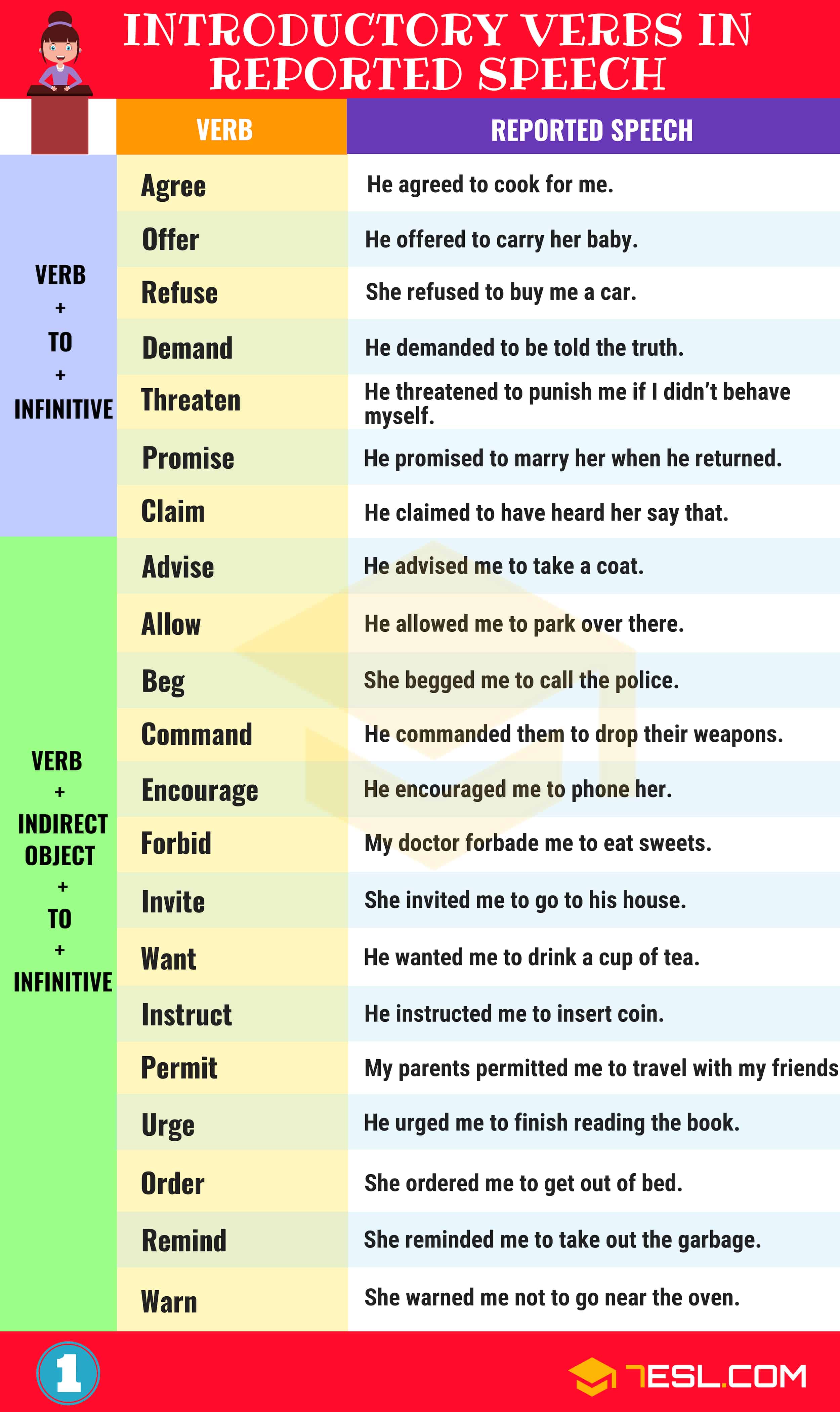
Reported Speech Important Grammar Rules and Examples • 7ESL
Textbook Solutions CBSE Notes Reported Speech How does it Work? Indirect speech or Reported speech is just a way of expressing your intent in questions, statements or other phrases, without essentially quoting them outrightly as the way it is done in indirect speech. Reported Speech Rules

Reported Speech How To Use Reported Speech Useful Rules Love English
Whenever you report a speech there's a reporting verb used like "say" or "tell". For example: Direct speech: I love to play football. Reported speech: She said that she loves to play football. (Note 1 : Assume a gender if not mentioned already. Note 2: Using "that" is optional.

Tense Changes in Reported Speech English Grammar Rules, Teaching English Grammar, English
1. We use direct speech to quote a speaker's exact words. We put their words within quotation marks. We add a reporting verb such as "he said" or "she asked" before or after the quote. Example: He said, "I am happy." 2. Reported speech is a way of reporting what someone said without using quotation marks.
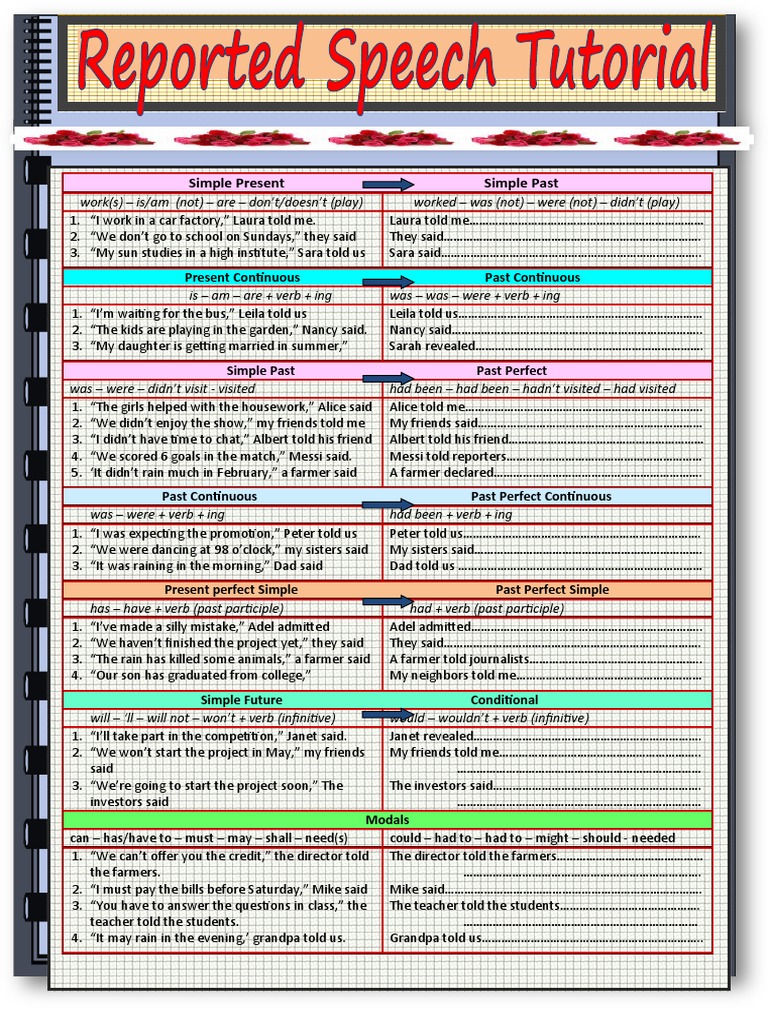
Unit 5 Reported Speech Table PDF Morphology Cognitive Science
Reported speech is simply when we tell somebody what someone else said. You can do this in your writing, or in speech. Reported speech is very different from direct speech, which is when you show what somebody said in the exact way that they said it. In reported speech though, you do not need to quote somebody directly.
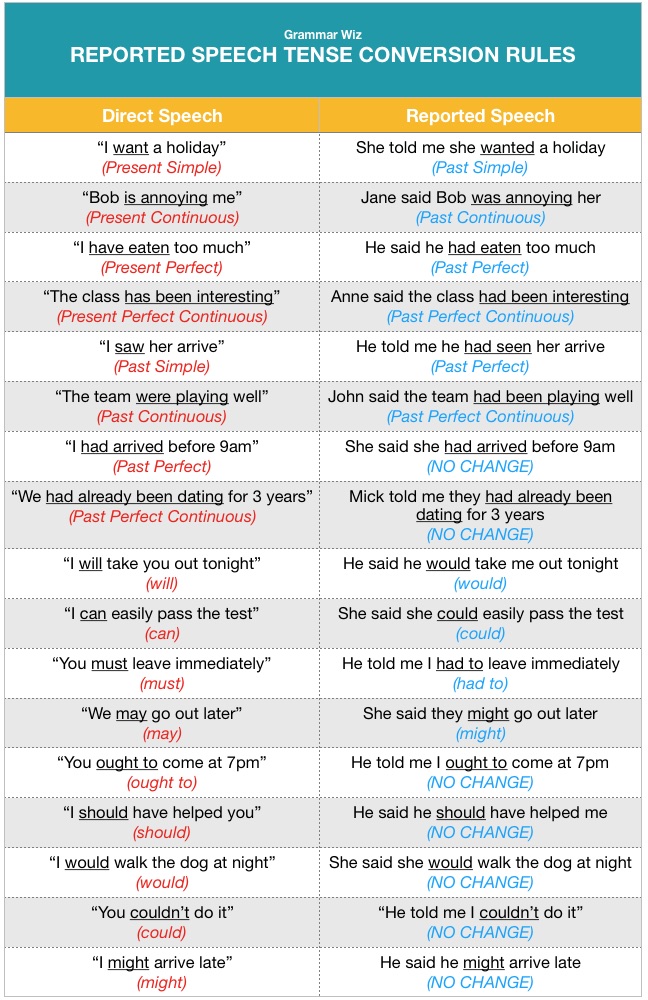
Reported Speech Tenses Chart How to convert tenses
Reported Speech Examples - More Complex Sentences Reported Speech Imperatives Exercise - Reported Mixed Exercise When we convert from direct speech to indirect speech, the tense of the sentence changes. See the chart below to understand direct to indirect speech tense shift.

Reported Speech A Complete Grammar Guide ENJOY THE JOURNEY
Table of Contents What Is Reported Speech? Definition of Reported Speech Rules to be Followed When Using Reported Speech Transforming Direct Speech into Reported Speech Table 1 - Change of Pronouns Table 2 - Change of Adverbs of Place and Adverbs of Time Table 3 - Change of Tense Table 4 - Change of Modal Verbs Tips to Practise Reported Speech
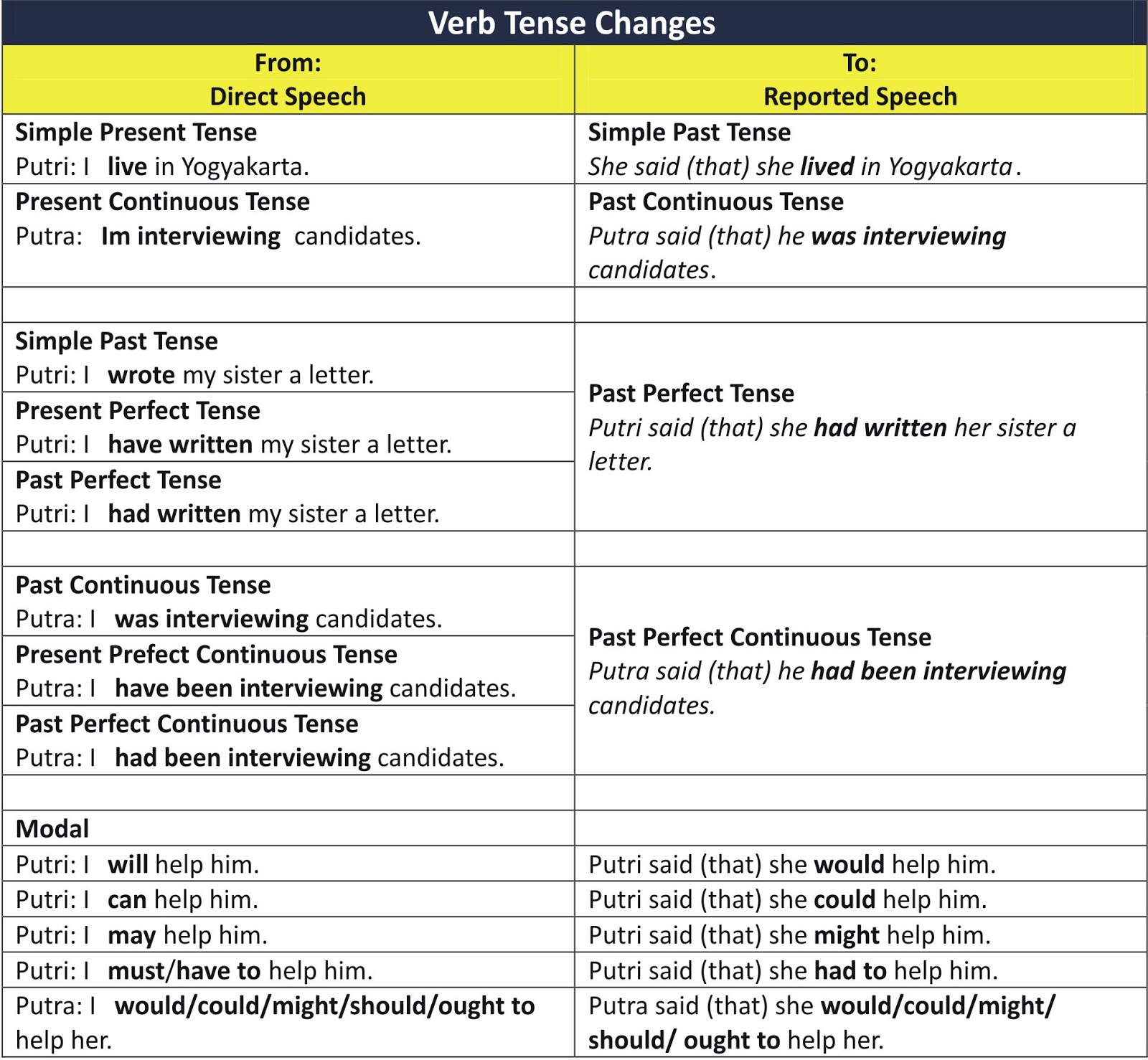
Learn English Reported Speech
Reported Speech Greg: "I am cooking dinner Maya." Maya: "Greg said he was cooking dinner." So most often, the reported speech is going to be in the past tense, because the original statement, will now be in the past! *We will learn about reporting verbs in part 2 of this lesson, but for now we will just use said/told as our reporting verbs.

Reported Speech Important Grammar Rules and Examples • 7ESL Reported speech, Direct and
She said she was having the interview at four o'clock. (Direct speech: 'I'm having the interview at four o'clock.') They said they'd phone later and let me know. (Direct speech: 'We'll phone later and let you know.') OK, in that last example, you changed you to me too.

Reported Speech Important Grammar Rules and Examples • 7ESL
Tense changes when using reported speech | EF Global Site (English) Normally, the tense in reported speech is one tense back in time from the tense in direct speech: She said, "I am tired." = She said that she was tired.
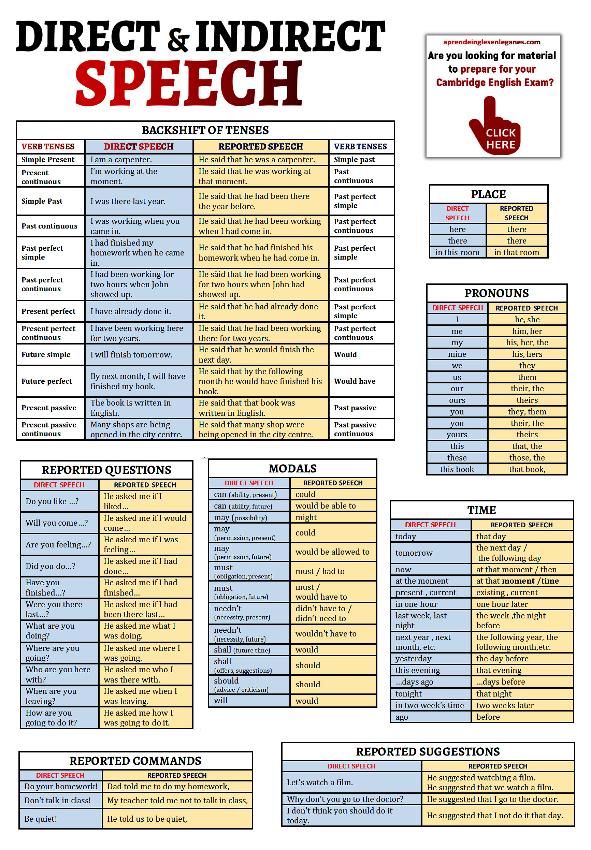
DIRECT SPEECH TO REPORTED SPEECH TABLE
Reported speech tenses will change from that of the direct speech in most cases. , with the basic rule that a tense is shifted back to its past tense form. This is because we are usually talking about something in the past. You can also watch a video of this lesson:

Reported speech Road to get 'BAC' (material English)
Overview and definitions. Direct speech means to say exactly what someone else said. It is usually put inside quotation marks (". . ."). I have the package. He says, "I have the package." Reported speech (also called indirect speech ) means to say what someone else said, without actually quoting them.

REPORTED SPEECH CHART Reported speech, Indirect speech, Direct and indirect speech
Reported speech is when we tell someone what another person said. To do this, we can use direct speech or indirect speech. direct speech: 'I work in a bank,' said Daniel. indirect speech: Daniel said that he worked in a bank.

Reported speech Road to get 'BAC' (material English)
Direct speech: I like ice cream. Reported speech: She says (that) she likes ice cream. We don't need to change the tense, though probably we do need to change the 'person' from 'I' to 'she', for example. We also may need to change words like 'my' and 'your'. (As I'm sure you know, often, we can choose if we want to use 'that' or not in English.

Click on REPORTED SPEECH BASICS
What is reported speech? Reported speech is a structure used to repeat what somebody has said before (direct speech): John: "My name is John" (direct speech) He said (that*) his name was John (reported speech) * that can be omitted. Note that after the verb said, which is in past tense, it is natural to continue the rest of the sentence in the.
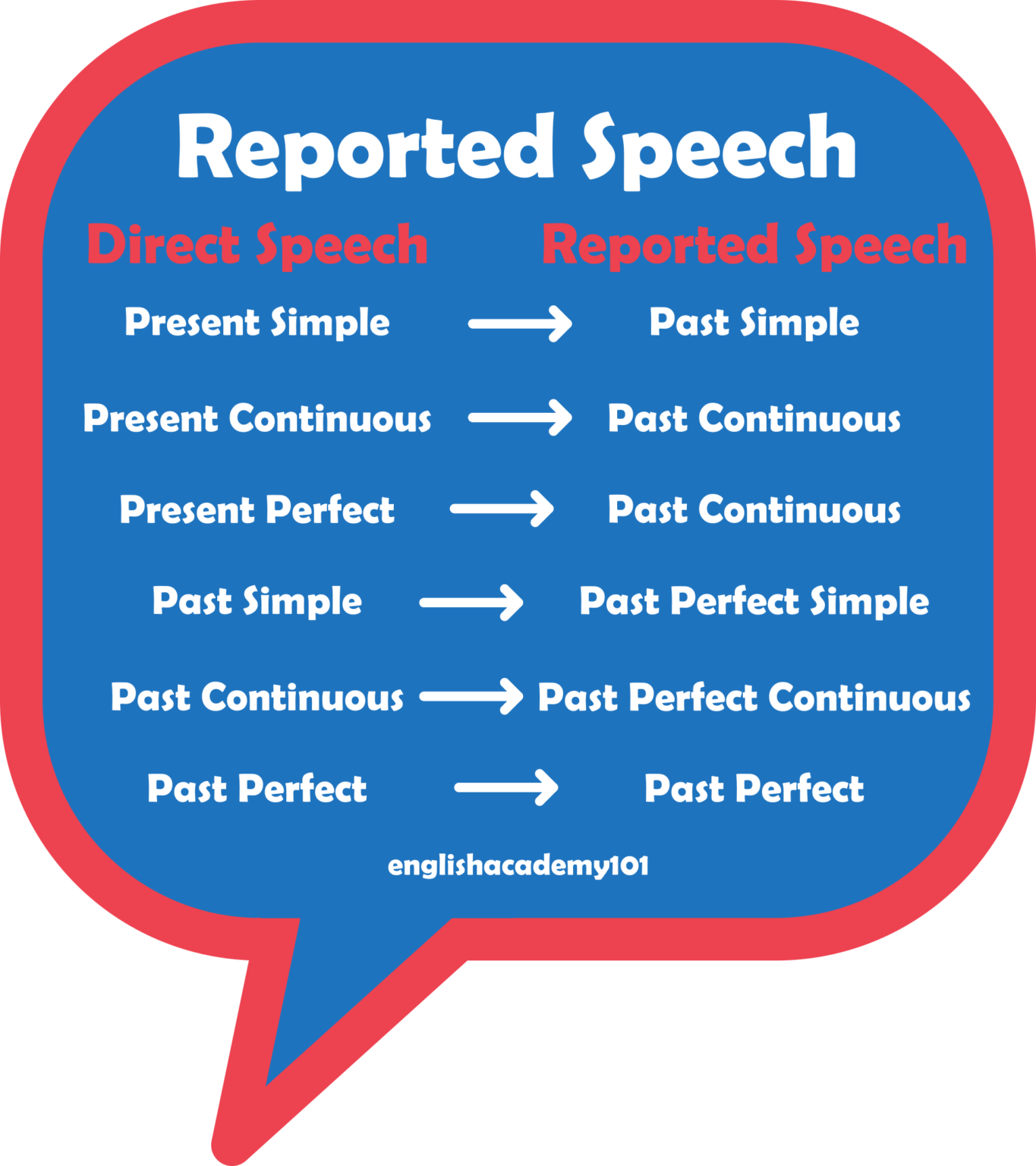
How to Use Reported Speech in English englishacademy101
Reported speech Level: intermediate Reporting and summarising When we want to report what people say, we don't usually try to report their exact words. We usually give a summary, for example: Direct speech (exact words): Mary: Oh dear. We've been walking for hours! I'm exhausted. I don't think I can go any further. I really need to stop for a rest.